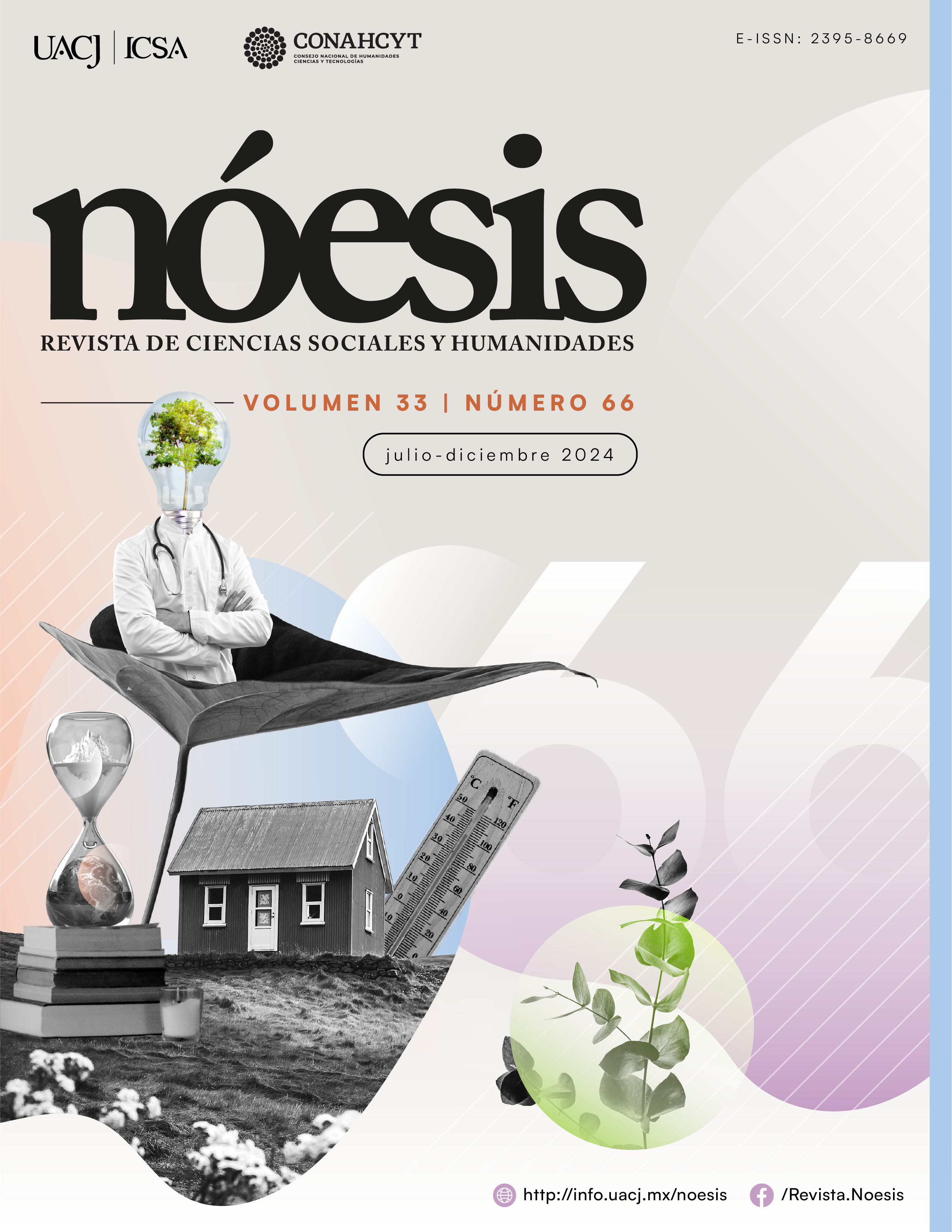Masculinity and public policies: the organization of an agenda in Mexico.
Main Article Content
Abstract
The main purpose of this communication is to identify, to describe the process of building a public policy agenda that involves men in the construction of equality with women, and to recognize the perception of those who participated in it. It conceived the process as an organization with its own dynamics. A descriptive research about ethnographic approach involved recovery of documentary information of the process, interviews with participants in the construction of the agenda and a workshop. Results are presented in a timeline involved papers to prepare work meetings; profiles of potential participants were identified, the work to be developed was outlined and the respective call for in-person and virtual meetings was issued. Participants in the work meetings discussed contents of the agenda and political impact, the requirements to continue the process and the formation of specialized working groups. Elements such as uncertainty, the breaking of agreements and their fixed, the (mis)knowledge of what public policy among others, intervened in the process. As a conclusion, the lessons that emerge from this process are noted.
Downloads
Article Details

This work is licensed under a Creative Commons Attribution-NonCommercial-ShareAlike 4.0 International License.
References
Arellano Gault, D. (1996). Política pública, racionalidad imperfecta e irracionalidad. Hacia una perspectiva diferente. Gestión y Política Pública, 5(2), 319-347. http://repositorio-digital.cide.edu/bitstream/handle/11651/1816/AGD_Vol.5_No.II_2dosem.pdf?sequence=3&isAllowed=y
Arellano, D., & Cabrero, E. (2007). Introducción. En D. Arellano, E. Cabrero, & A. del Castillo (eds.), Reformando al gobierno. Una visión organizacional del cambio gubernamental (pp. 5-18). México: Miguel Ángel Porrúa / CIDE.
Barker, G., Greene, M. E., Siegel, E. G., Nascimento, M., Segundo, M., Ricardo, C., . . . Pawlak, P. (s/f). What men have to do with it. Public Policies to Promote Gender Equallity. Washington / Rio de Janeiro: ICRW / Instituto Promundo.
Carmona Hernández, P. S. (s/f). Introducción a la incidencia en políticas públicas. GENDES.
Carmona, P., & Esquivel, I. (2018). Suma por la igualdad. Propuestas de agenda pública para implicar a los hombres en la igualdad de género. Gendes.
Couto, M. T., & Gomes, R. (2012). Men, health and public policies: gender equality in question. Ciência & Saúde Coletiva, 17(10), 2569-2578. http://www.scielo.br/pdf/csc/v17n10/en_02.pdf
del Castillo, A. (2007). Problemas en la acción gubernamental: organizaciones y redes de actores. En D. Arellano, E. Cabrero, & A. del Castillo (eds.), Reformando al gobierno. Una visión organizacional del cambio gubernamental (pp. 359-395). México: Miguel Ángel Porrúa / CIDE.
Directorio de participantes. (2015). Reunión de Trabajo: “Construcción de una agenda de políticas públicas para propiciar el cambio de los hombres y con los hombres y mujeres tendiente a la igualdad y equidad”. Programa Interdisciplinario de Estudios de Géne ro (PIEGE), Departamento de Estudios Regionales-INESER. Centro Universitario de Ciencias Económico Administrativas de la Universidad de Guadalajara.
Dussel, E. (2006). 20 tesis de política. Siglo XXI / Centro de Cooperación para la Educación de Adultos en América Latina y el Caribe (crefal).
Esquivel Ventura, I. M., & Carmona Hernández, P. S. (s/f). Suma por la igualdad. Propuestas de acción pública para implicar a los hombres en la igualdad de gpenero. GENDES.
Fundación Cepaim. (s/f). Comparativa internacional en políticas de masculinidades. Ministerio de Igualdad.
Galarza, S. (2022). La dimensión ideacional: Construyendo un vínculo con las redes de políticas. Revista Estudios de Políticas Públicas, 8(1), 79-89. doi:10.5354/0719-6296.2022.65466
GENDES. (2013). Las políticas de igualdad de género… Elementos críticos para activar la responsabilidad masculina. GENDES, A. C.
Hammersley, M., & Atkinson, P. (1994). Etnografía. Métodos de investigación. Paidós Básica.
MenEngage. (2014). Declaración de Delhi y Llamado a la Acción: Hombres y Niños por la Justicia de Género. (Consultado el 20 de enero de 2023). https://menengage.org/wp-content/uploads/2021/09/Delhi-Declaration-and-Call-to-Action_Spanish_Final.pdf
MenEngage. (s/f). Hombres, masculinidades y cambios en el poder. MenEngage / ONU Mujeres / UNFPA.
Naciones Unidas. (1995a). Informe de la Conferencia Internacional sobre la Población y el Desarrollo. El Cairo, 5 a 13 de septiembre de 1994. Naciones Unidas.
Naciones Unidas. (1995b). Informe de la Cuarta Conferencia Mundial sobre la Mujer. Beijing, 4 a 15 de septiembre de 1995(pp. 238). (Consultado el 14 de septiembre de 2016). doi:http://www.un.org/womenwatch/daw/beijing/pdf/Beijing%20full%20report%20S.pdf .
PROMUNDO, MenEngage, Instituto PAPAI, Save the Children, UNFPA, & Childhood Instituto WCF-Brasil. (2009). Involucrando a Hombres y Niños en la Equidad de Género. Declaración de Río de Janeiro. (Consultado el 15 de diciembre de 2022). https://elsalvador.unfpa.org/sites/default/files/pub-pdf/declaracion_rio.pdf
Ramírez Macías, J. d. J. (2007). Teoría de la organización: metáforas y escuelas. En D. Arellano, E. Cabrero, & A. del Castillo (eds.), Reformando al gobierno. Una visión organizacional del cambio gubernamental (pp. 23-76). Miguel Ángel Porrúa / CIDE.
Ramírez Rodríguez, J. C., & Gutiérrez de la Torre, N. C. (2015). Informe del proyecto: “La construcción de una agenda de políticas públicas sobre igualdad de género que involucre a los hombres”. Programa Interdisciplinario de Estudios de Género. Departamento de Estudios Regionales- INESER. Centro Universitario de Ciencias Económico Administrativas. Universidad de Guadalajara.
Ramírez Rodríguez, J. C., & Gutiérrez de la Torre, N. C. (2017). Hombres y políticas de igualdad de género: una agenda en construcción. Universidad de Guadalajara.
Ramos Ramírez, J. L. (2022). Etnografía concéntrica y didáctica. Notas para no-antropólogos. Nóesis. Revista de Ciencias Sociales y Humanidades, 26(52), 76-89. doi:10.20983/noesis.2017.2.4
Redpath, J., Morrell, R., Jewkes, R., & Peacock, D. (2008). Masculinities and public policy in South Africa: changing masculinities and working toward gender equality. Sonke Gender Justice Network. (Consultado el 12 de enero de 2022). https://www.eme.cl/wp-content/uploads/Masculinities-and-Public-Policy-in-South-Africa.pdf
Ruxton, S. (2009). Man Made: Men, masculinities and equality in public policy. The Coalition on Men and Boys. (Consultado el 12 de enero de 2022). http://www. menshealthforum.org.uk/sites/default/files/pdf/comab-full_report-final_190309.pdf.
Taylor, S. J., & Bogdan, R. (1996). Introducción a los métodos cualitativos de investigación. Paidós.
UNESCO. (2000). Report of the Experts Group Meeting. Male roles, masculinities and violence. A culture of peace perspective. Oslo, 24-28 September 1997 (excerpts). En I. Breines, R. Connell, & I. Eide (eds.), Male roles, masculinities and violence. A culture of peace perspective (pp. 271-280). UNESCO.

